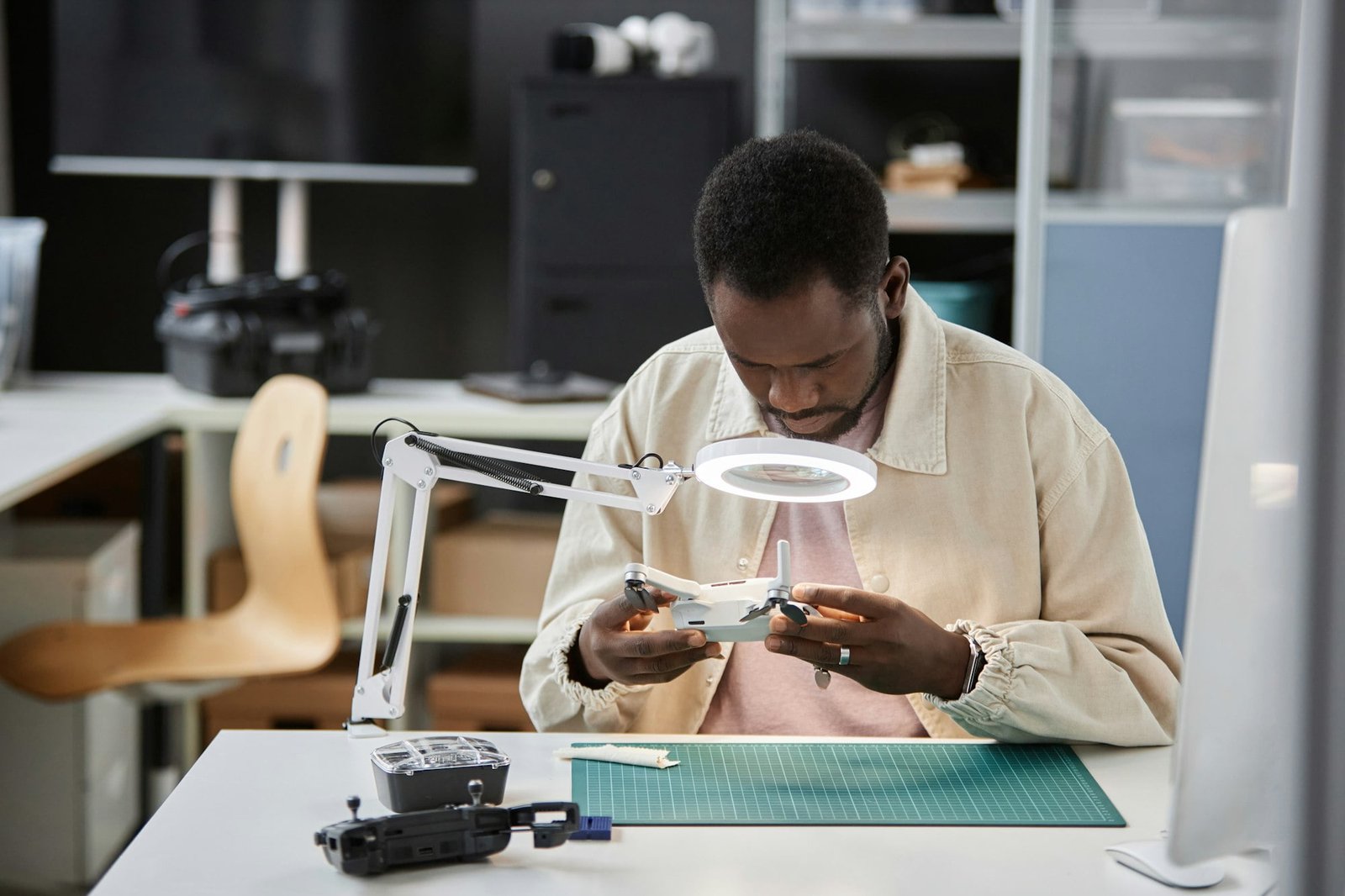Prolonging Vehicle Lifespan: How AI-Enabled Autonomous Repair Drones Are Changing the Automotive Industry in 2035
Future AI AutomotiveTable of Contents
In 2035, the automotive industry is witnessing a groundbreaking development with the introduction of AI-enabled autonomous repair drones. These innovative drones are revolutionizing vehicle maintenance by autonomously identifying and repairing mechanical issues, ultimately extending the lifespan of vehicles. Let’s delve into how these drones are reshaping the automotive landscape and ensuring vehicles stay on the road for longer.
The Rise of Autonomous Repair Drones
Autonomous repair drones represent a leap forward in automotive maintenance technology. Equipped with artificial intelligence, advanced sensors, and robotic arms, these drones are capable of diagnosing and fixing a wide range of mechanical problems without human intervention. From minor repairs such as replacing worn-out parts to more complex tasks like engine diagnostics, autonomous repair drones are redefining the concept of vehicle maintenance.
Efficiency and Precision in Maintenance
One of the key advantages of autonomous repair drones is their efficiency and precision in maintenance tasks. By leveraging AI algorithms and real-time sensor data, these drones can quickly identify and assess issues with unparalleled accuracy. This allows for swift and targeted repairs, minimizing downtime and maximizing vehicle uptime. Additionally, autonomous repair drones can work around the clock, ensuring that maintenance tasks are completed promptly and efficiently.
Remote Repair Capabilities
Autonomous repair drones offer the added benefit of remote repair capabilities. Using advanced communication technologies, these drones can be deployed to vehicles located in remote or inaccessible areas. Whether it’s a breakdown in a remote rural area or a stranded vehicle on a highway, autonomous repair drones can swiftly reach the location and perform necessary repairs, reducing the need for towing and onsite assistance.
Cost-Effectiveness and Sustainability
In addition to their efficiency, autonomous repair drones offer cost-effectiveness and sustainability benefits. By streamlining maintenance processes and reducing labor costs associated with traditional repairs, these drones help lower overall maintenance expenses for vehicle owners. Moreover, by facilitating proactive maintenance and addressing issues before they escalate, autonomous repair drones contribute to prolonging vehicle lifespan and reducing the environmental impact associated with premature vehicle disposal.
Empowering Vehicle Owners
Autonomous repair drones empower vehicle owners by providing greater control over maintenance activities. With the ability to schedule autonomous repair sessions and monitor vehicle health remotely, owners can proactively address maintenance issues and ensure their vehicles remain in optimal condition. This proactive approach not only enhances safety and reliability but also helps owners make informed decisions about vehicle upkeep and repair investments.
FAQs:
How do AI-enabled autonomous repair drones work?
AI-enabled autonomous repair drones utilize artificial intelligence, advanced sensors, and robotic arms to autonomously identify and repair mechanical issues in vehicles. These drones can perform tasks ranging from minor repairs to complex diagnostics without human intervention.
What are the advantages of autonomous repair drones in vehicle maintenance?
Autonomous repair drones offer efficiency, precision, and remote repair capabilities in vehicle maintenance. They streamline maintenance processes, minimize downtime, and reduce labor costs, ultimately prolonging vehicle lifespan and enhancing cost-effectiveness for vehicle owners.
How do autonomous repair drones contribute to sustainability?
Autonomous repair drones contribute to sustainability by facilitating proactive maintenance and prolonging vehicle lifespan. By addressing maintenance issues before they escalate, these drones help reduce the environmental impact associated with premature vehicle disposal and contribute to overall resource efficiency in the automotive industry.
Can autonomous repair drones work on all types of vehicles?
Autonomous repair drones are designed to work on a wide range of vehicles, including cars, trucks, and commercial vehicles. However, their compatibility may vary depending on the specific repair tasks and vehicle configurations. Manufacturers are continually improving drone capabilities to accommodate diverse vehicle types and maintenance needs.
Are there any privacy or security concerns associated with autonomous repair drones?
Privacy and security concerns related to autonomous repair drones primarily revolve around data privacy and cybersecurity risks associated with remote maintenance activities. To address these concerns, manufacturers implement stringent data protection measures and encryption protocols to ensure the secure handling of vehicle data and communication channels.
